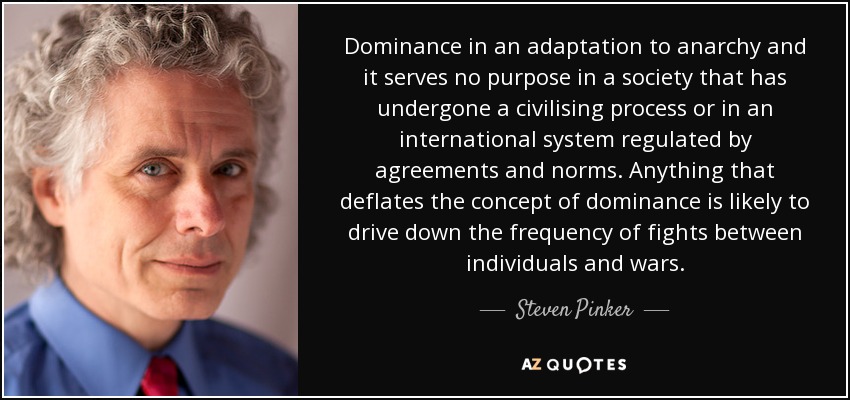Steven Pinker Quotes - Page 4
Quotes about:-
-
 Dominance in an adaptation to anarchy and it serves no purpose in a society that has undergone a civilising process or in an international system regulated by agreements and norms. Anything that deflates the concept of dominance is likely to drive down the frequency of fights between individuals and wars.
Dominance in an adaptation to anarchy and it serves no purpose in a society that has undergone a civilising process or in an international system regulated by agreements and norms. Anything that deflates the concept of dominance is likely to drive down the frequency of fights between individuals and wars.
-
Steven Pinker
- Born: September 18, 1954
- Occupation: Psychologist
- Cite this Page: Citation




























